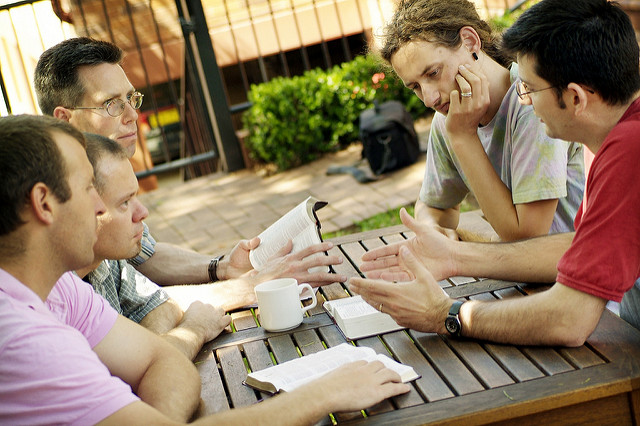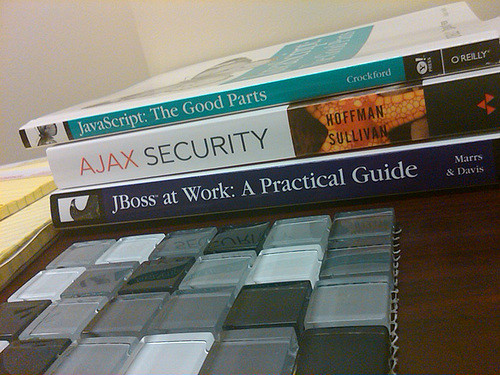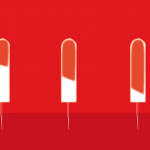The Job market is getting increasingly competitive, and leaving the comforting cocoon of university life seems far less appealing. But is it really as scary as it seems? Young europeans tell us their experiences with leaving education and their transition into careers and jobs.
Anja, German, 27, BBA International Tourism Management:
After my studies and many internships I was ready for the “real” world and started looking for a job. I was prepared it would take some time but that it would be taking this long, I hadn’t expected. My letter of references have been excellent, I was fairly convinced that I would be doing a good job in whatever company I applied for a job but still, nothing happened. Of course, I was invited to some job interviews, sometimes via phone, sometimes face-to-face but after a few days or weeks they turned me down. From some companies I haven’t heard back at all. Just to be clear, I have applied all over Germany, I didn’t even narrow it down to a certain region. Still, no positive response. I then started applying for jobs that I – to be honest – considered too dull for me but what could I do? I needed to work somewhere after all. Those were the jobs I was invited for interviews and eventually got them but I turned them down – I couldn’t imagine working this way. And this was the best decision I made.
One day, I had a job interview in Munich and the job description sounded great. When I met my future boss and fellow colleagues I was 100% convinced that I needed the job. I left the interview with a positive attitude and hoped to hear back from them soon. On my way back to my home town I got the call approximately 2 hours later. They were offering me the job. That was it. After half a year of applying for random jobs, I now finally moved to Munich a month later and loved it ever since. What I have learned? Believe in what you want and don’t take any job you don’t want to do. At least, it worked for me!
Francesca, Italian, 21, PR Intern, BSc Biomedical Sciences:
I think the scariest part of transitioning from studying to a career is the realisation that for the last 20 years or so your brain has worked in academic terms with the new studying year starting in September. When I graduated I couldn’t believe that I didn’t know what I was going to be doing for the coming September. There are some people who have a job lined up already albeit it might not be their ideal job but they still have a job. I am currently in a career which is the polar opposite of what I studied at uni and that transition is exciting because there is a whole new world to explore.
What you learn is that actually you don’t become an adult when you start a career, you just have to improve your time management skills so as to optimise your work/life balance. There is also the moments where you flip-flop the idea of going back to studying. That’s normal and very common this new career life is sort of like jumping into the unknown. However, what this transition has really taught me is that it will all be fine and that even though you do not have your dream job lined up, or the most well-paid job you can time your time and figure things out because you are still so young.

Sam, British, 22. BA English
I laughed when asked to write this. You see, the transition from full-time education to, well, not being in full-time education hasn’t exactly gone to plan. As I write, I’m acutely aware that it’s almost exactly a year since I sat my university finals. The year since feels, in my more melodramatic moments, like an utter waste — a monument to the folly of leaving the pretty confines of a pretty university without a plan, and somehow expecting charm and some paper with a hologram on it (my degree certificate, if you were wondering) to cause a job to fall at my feet.
Instead, as the academic year 2015-2016 (that years really begin in January is, it turns out, one of the harder facts of Real Life™ to come to terms with) comes to an end, it’s looking likely that I’ll jump at the chance — more debt permitting — to crawl back towards academia for another year at least (although I do did have a couple of irons in the fire.). I could rhapsodise about the dark moments of the past year, the self-doubt and the panic, but self-pity is never an edifying trait, and frankly, I’ve had my Twitter feed for that.
It hasn’t all been misery and failure, and life hasn’t actually been as shit as the above may make it sound. I’ve come to euphemistically call this year my ‘accidental gap year’, and in truth, much of it has been spent trying to make myself more employable. Hopefully this has worked. I’ve found myself a couple of great projects (Europe and Me included), met some fascinating people (those at Europe and Me included again), and learnt a lot about what I want from jobs, and from life in general.
I think the thing to learn from my odd little year is simple: don’t expect best case scenarios to pan out, and make the most of opportunities that come your way. (Or even just the ones that come in your general direction.) That said, I had a look through some of my tweets from this year, and the one that strikes me as especially pointed is this one: “I am really glad for all the great arts stuff at the moment, keeping me sane. Thx Elena Ferrante, Joe Swanberg, Aziz Ansari, et al” It’s been a good year to be an underemployed Millennial, really.
Thomas, German, MSc Food Technology and Biotechnology:
Getting a job or at least a job interview turns out to be a long way down the road of self-motivation and time management. Of course you are aware that leaving the structured environment of university comes with total self-dependence and the need to reconcile your personal aims with any job offer. But reality is still striking. My graduate degree and my letter of reference are both good, so I expected it would take some time to get started, but I didn’t expect the whole process to be this tenacious. Additionally, job offers tend to seek just the Swiss Army Knife of a new employee, preferentially candidates with at least half a lifetime of work experience. Application letters are more or less an accumulation of the ever best fitting part of you for any position, while you linger with your own insecurity not knowing if you are really prepared for anything they ask from you.
“Thank you for applying to our recent opening. We regret to inform….” Too young, too inexperienced, too..: Getting one of these responses sometimes makes the question arise as to why you have been turned down without even a personal interview. But I know the reasons may be various and in most cases it’s not even a person related decision. On the other hand, applications for trainee positions end up in the perpetual treadmill of assessment centers which put you through the paces while playing very clever and job relevant role plays. Frankly, I am just half as frustrated as it may sound. The most crucial part in this new episode of my life was how to deal with the vagueness and blur which emerge while looking for a job. The first months in the career environment taught me to define daily goals of “application-workloads” and to structure the rest of the day. Doing something worth getting up for and staying optimistic is essential. Thanks to all my friends who keep me busy with any kind of side projects!

Lars, Dutch, 25. BSc Liberal Arts, major in Social Sciences:
The path I’ve chosen after graduating for my Bachelor degree was a very conscious one. I am very well aware that once you finish your master’s degree one will find him or herself at the doorstep of a career which could take you into any direction of which uncertainty is the greatest certainty. Therefore I took a gap year before starting my masters degree. During this year I work part-time in a call center to make some money, have the free time to travel to places I’ve always wanted to visit like Russia and Iran, as well as having enough time to develop new skills like playing the piano and writing a book.
The greatest challenge I’ve found in this season of my life is that you consciously have to make something out of each day. You no longer need to get up on time for early lectures and no longer you make spontaneous plans with those very people with whom you just spend that lecture with. Without a self-made plan you’ll end your days just hanging around not being very constructive, the time after graduation simply asks for another level of independency and maturity.
Lastly, this gap year allows me to reflect on where I come from and where I would like to go to. When one directly hops on this train that is called career, one runs the risk that things that haven’t been set right in the past could lead to a dead end or might even cause one to derail later on. Personally I discovered that how my parents raised me had a tremendous impact on what I wanted to achieve, or rather, what I wanted to proof in my life. But by understanding this allows one to consciously decide not to be driven by such extraneous motives and rather direct one’s energy to actions which do lead to the things that are truly close to your heart.
Teaser Photo: Alan Light (Flickr); Licence: CC BY 2.0










